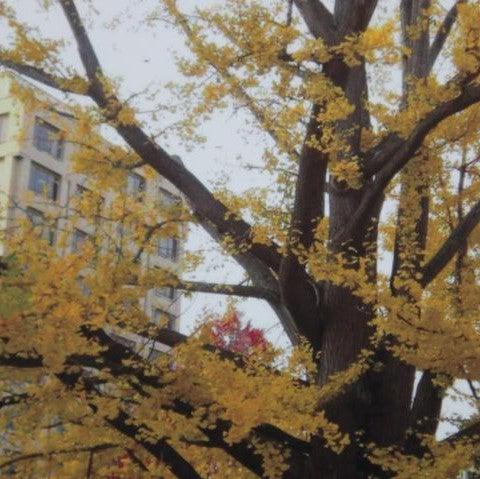

Description
- Common name:
- Maidenhair Tree
- Regional name:
- Marathi - Ginko, Jinko
- Category:
- Trees, Medicinal Plants
- Family:
- Ginkgoaceae
- Light:
- Sun growing
- Water:
- Normal
- Primarily grown for:
- Foliage
- Flowering season:
- Flowers are inconspicuous
- Foliage color:
- Green, Yellow
- Plant Height or length:
- More than 12 meters
- Plant Spread or Width:
- 8 to 12 meters
- Plant Form:
- Upright or Erect
- Plant Description:
- Ginkgo biloba, also known as the Maidenhair, is a unique species of tree with no close living relatives. It is native to China and is one of the oldest living tree species, with some specimens dating back more than 1,500 years. The tree is known for its fan-shaped leaves and distinctive, foul-smelling seeds. In traditional Chinese medicine, Ginkgo biloba has been used to treat a wide range of ailments, including respiratory and circulatory problems. It is also commonly used as a dietary supplement, particularly for memory and cognitive function. However, evidence supporting the effectiveness of Ginkgo biloba as a medicine or supplement is mixed and more research is needed to confirm its benefits.
- Growing tips:
-
Ginkgo biloba is a hardy and low-maintenance tree that can be grown in a variety of conditions. Here are some tips for caring for a Ginkgo biloba tree:
-
Planting: Ginkgo biloba trees can be grown in a variety of soils, but they prefer well-drained, fertile soil. They should be planted in an area with full sun exposure.
-
Watering: Once established, Ginkgo biloba trees are relatively drought-tolerant. However, they will benefit from regular watering during prolonged periods of drought.
-
Pruning: Ginkgo biloba trees do not require regular pruning, but they may be pruned to remove dead or damaged branches or to control the tree's size.
-
Fertilization: Ginkgo biloba trees do not require regular fertilization, but they may benefit from an application of a balanced fertilizer in the spring.
-
Disease and pests: Ginkgo biloba trees are relatively disease- and pest-resistant, but they can be affected by various fungal diseases and insect pests. These can be controlled with appropriate fungicides or pesticides.
-
Winter care: Ginkgo biloba trees are hardy and can tolerate cold temperatures. However, young trees should be protected from frost during their first few winters.
It's important to note that Ginkgo biloba is a long-lived tree, and it can grow to be quite tall, so consider space and size of the tree before planting it. Also, Ginkgo biloba is dioecious, which means that it can produce either all male or all female trees. So if you are looking for a tree that produces the fruits( seeds) , you should consider getting a female tree.
-
- Benefits:
-
Ginkgo biloba has been used for centuries in traditional medicine for a variety of purposes, and more recently it has been studied for its potential health benefits. Here are a few examples of benefits that have been attributed to Ginkgo biloba:
-
Improving cognitive function: Ginkgo biloba may improve memory, concentration, and cognitive function in people with dementia or Alzheimer's disease. Some studies suggest that it may also help with age-related cognitive decline.
-
Treating anxiety and depression: Ginkgo biloba may help to reduce symptoms of anxiety and depression, although more research is needed to confirm this effect.
-
Improving circulation: Ginkgo biloba may improve blood flow to the brain, limbs, and other parts of the body. This is thought to be due to its ability to dilate blood vessels, which can help to reduce the risk of blood clots and other circulation-related problems.
-
Relieving symptoms of tinnitus: Ginkgo biloba may help to reduce symptoms of tinnitus, which is a condition characterized by ringing or other noises in the ears.
-
Improving symptoms of PMS: Some research suggests that Ginkgo biloba may help to improve symptoms of premenstrual syndrome (PMS), such as mood changes, breast tenderness, and bloating.
It's important to note that not all the studies have been consistent in finding benefit in these areas and more research is needed to confirm its effectiveness. Also, Ginkgo biloba may interact with certain medications and should not be taken without consulting a healthcare provider.
-
